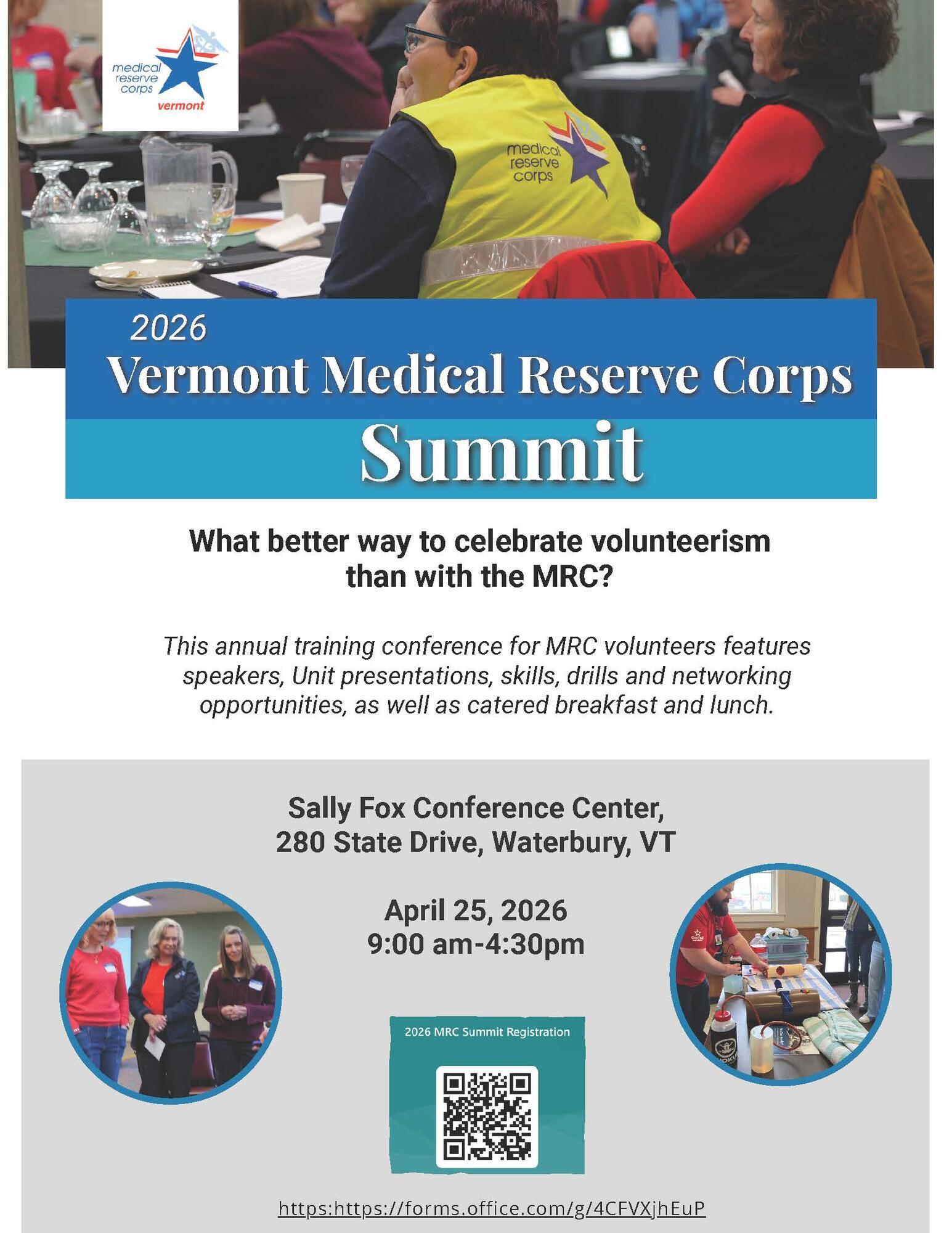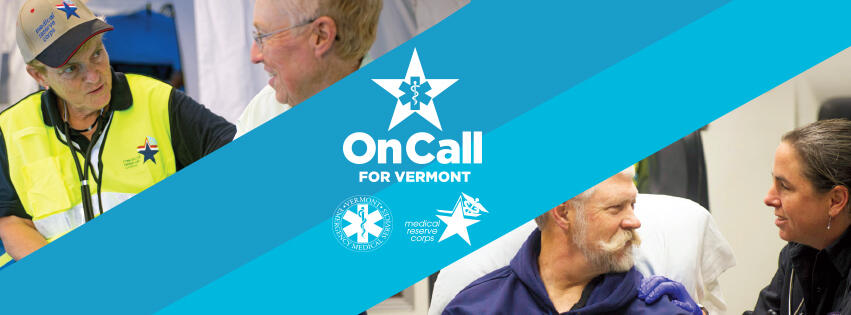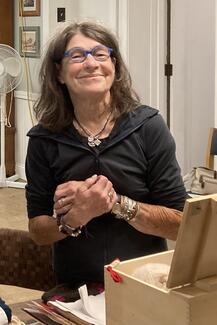
Are you interested in volunteering to help out your community? Consider reaching out to your local MRC unit and join today!


Are you interested in volunteering to help out your community? Consider reaching out to your local MRC unit and join today!

Anyone can join the Medical Reserve Corps and learn the skills necessary to help out your neighbors and community members in the event of an emergency.
Vermont thrives on volunteer efforts—and never is that truer than during emergencies. From trained medical professionals who respond daily to citizen volunteers who step up during natural disasters, Vermonters like you make all the difference in our communities’ health, safety, and preparedness. OnCall for Vermont offers two opportunities for health-focused volunteering–Medical Reserve Corps and Emergency Medical Services.
Vermont’s Medical Reserve Corps (MRC) units are community-focused volunteers who supplement local public health and emergency response resources. They receive training in emergency preparedness, prepare for and respond to emergencies, and promote public health throughout the year. Part of the national MRC network, Vermont’s eight MRC units are a shining light in their community.
The first step to joining the MRC is registering with the Vermont Volunteer Responder Management System. This will connect you with your local MRC unit to learn more about the program.
Watch the video below to learn why some members of Vermont's MRC group joined!
Vermont’s Emergency Medical Services (EMS) volunteers often see people on the worst day of their lives–providing timely care to help Vermonters in their most critical times of need. When a call comes in, you never quite know what to expect. These dynamic and unpredictable situations require a high level of coordinated teamwork–a cornerstone of the EMS experience.
Find a Volunteer EMS Opportunity

What was your reason for joining the Medical Reserve Corps program?
I joined MRC about 10 years ago when a friend who was previously my manager in the ED at Northeastern Vermont Regional Hospital asked if I would serve on the board. She was also head of Danville Rescue where I first joined as a volunteer first responder. Eventually I became an AEMT as part of Lyndon Rescue for about 10 years, so this was kind of a continuing commitment to my community.
Tell us about your professional experience.
I graduated from Columbia University with a degree in Comparative Religion but basically had all sorts of jobs until I went to Norwich University and became a nurse at Northeastern Vermont Regional Hospital. Most of my career was in the ED which really was my medical education. After leaving NVRH I have been working per diem at Hardwick Health Center and at CVMC Express Care with incredible colleagues in the challenging health care environment.
What’s something we should know about you?
I have had sheep( did have dairy goats as well) for 50 years. I spin and dye my yarn and sell it at a coop formed with a few friends called Northeast Kingdom Artisan's Guild in St. Johnsbury.
What was your favorite moment, or most memorable experience of your MRC work?
I think one of my favorite moments with MRC was the dental pop- up clinic we worked at in Barton this past year- it was a generous gift from dental professionals to the community.
What are your parting words to anyone considering joining the MRC?
I would tell anyone to join MRC- give whatever amount of time you have to give to your neighbors and be ready for emergent situations.